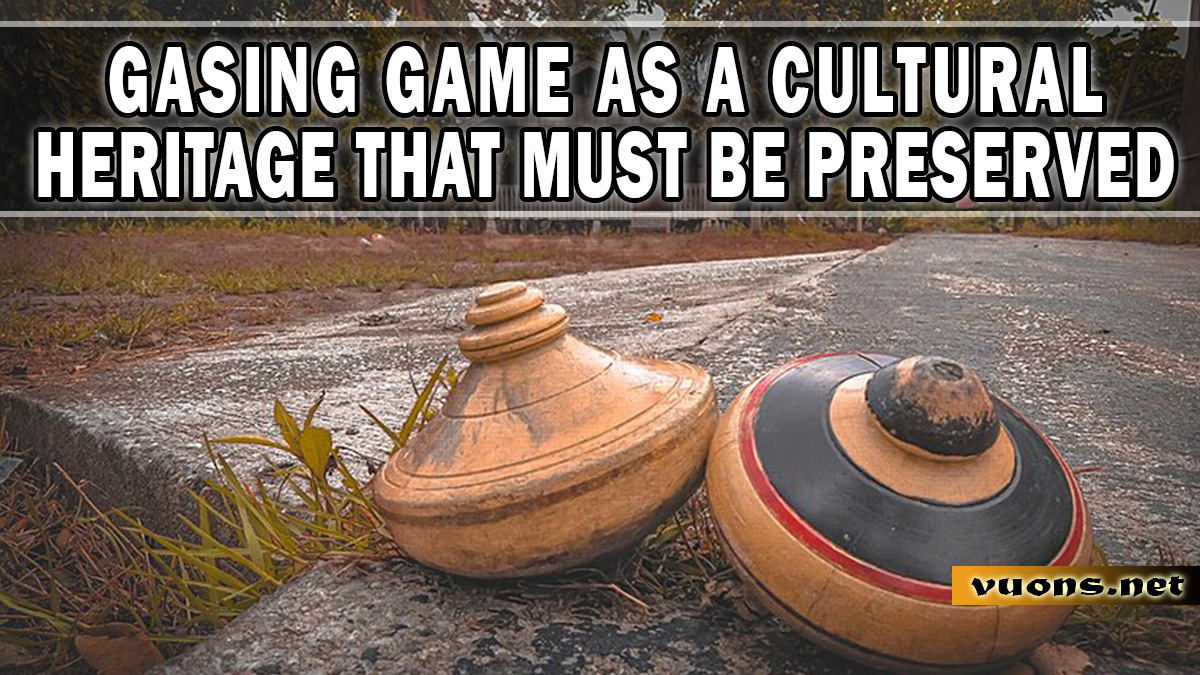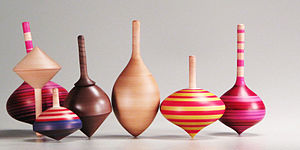Top Game: From Village to International Event
Brief History of the Gasing Game in Indonesia
A Brief History of the Gasing Game in Indonesia highlights the long journey and importance of this traditional game in Indonesian culture. Gasing, or what is also known as “gangsing” in some areas, is a traditional game played by children and adults in various regions in Indonesia.
The top game has been around since ancient times and has strong cultural roots. In Java, this game is known as “gangsing” and is often played by children in villages. In Minangkabau, West Sumatra, gasing is known as “pacu jawi” and is part of the local community’s traditions. This game is not only played for entertainment, but also in various traditional ceremonies and festivals.
Traditional spinning tops are generally made of wood or bamboo and come in various shapes depending on the region of origin. Each region has its own unique playing style and techniques, reflecting the diversity of Indonesian culture. In some areas, such as Riau and the Riau Islands, gasing is played competitively in competitions called “gasing games.”
During the colonial period, top games received the attention of European researchers and anthropologists who were interested in the richness of local culture. They documented how to make and techniques for playing tops, which then spread to various corners of the world as one of Indonesia’s cultural heritage.
Until now, spinning tops are still played and taught to the younger generation as part of cultural preservation efforts. Several schools and cultural communities often hold spinning top competitions to introduce this traditional game to children.
A brief history of the Gasing Game in Indonesia reflects how important this traditional game is in enriching the nation’s cultural heritage. From time to time, spinning tops remain a symbol of joy, creativity and togetherness in Indonesian society.
Types of Tops that are Popular in Various Regions
In Java, gasing is known as “gangsing.” Javanese tops are generally made of wood with a simple and light shape. This game is often played by children in rural areas, especially during the dry season when the land is dry and suitable for spinning tops.
In West Sumatra, especially in Minangkabau, gasing is known as “pacu jawi.” These tops are usually bigger and heavier than tops from other regions. Pacu jawi is played competitively and is often part of traditional festivals and ceremonies. Minangkabau spinning tops have an aerodynamic shape to achieve stable and long-lasting rotation.
In Kalimantan, tops have various shapes and sizes. In the Dayak tribe, tops are often made from hardwood and decorated with traditional carvings. Gasing games in Kalimantan are also often accompanied by traditional music and dance, making them an integral part of traditional ceremonies and cultural festivals.
In Sulawesi, gasing is known as “ma’raga” in the Bugis language. Bugis tops are usually made of metal or wood with more complex shapes. This game requires high skill and dexterity, because the playing technique involves fast and precise turns.
In Bali, tops are called “tajog.” Balinese Tajog is generally small and light, and played with a smooth and gentle technique. This game is often associated with religious ceremonies and traditional rituals, reflecting high spiritual values.
Types of Tops that are Popular in Various Regions show how rich and diverse traditional game culture is in Indonesia. Each type of top represents not only a different way of playing but also cultural values and traditions passed down from generation to generation. Gasing remains a symbol of togetherness and joy in Indonesian society.
The Development of Top Games in the Modern Era
The development of the Gasing Game in the Modern Era reflects how this traditional game remains relevant and undergoing transformation amidst the current of modernization. Gasing, which has been an integral part of Indonesian culture since ancient times, is now finding new ways to survive and thrive.
In the digital era, many traditional games are starting to be forgotten. However, gasing has managed to maintain its popularity through various cultural preservation initiatives. In many areas, local communities and local governments work together to hold spinning top festivals and competitions. This activity not only aims to preserve traditions but also to introduce spinning tops to the younger generation who may have never played them.
Social media also plays an important role in the development of top games in the modern era. Through platforms such as YouTube, Instagram, and TikTok, video tutorials on how to make and play a spinning top have gone viral. This helps expand the reach and attracts people from various backgrounds to try the game.
In addition, innovations in the design and materials of tops have also contributed to their popularity. Some craftsmen are starting to make spinning tops from modern materials such as plastic and metal, which are more durable and easier to shape. The more attractive and varied top designs are also a special attraction for top collectors and top players.
Overall, the development of the top game in the modern era shows that even though times continue to change, traditional and cultural values can still survive and develop. Gasing is not only a game, but also a symbol of Indonesia’s rich culture which continues to live and develop amidst modernization.
Gasing Competition: From Local to International Level
Gasing Competition: From Local to International Level shows how this traditional game has developed into a competition that attracts the attention of many people in various parts of the world. Gasing, or gangsing, which was originally only played simply in the local area, has now become part of large events involving many participants and spectators.
At the local level, spinning top competitions are often held in villages and small towns as part of cultural festivals and traditional ceremonies. In Indonesia, for example, each region has its own unique variety of spinning tops and different playing techniques. This local competition not only showcases the players’ skills, but also strengthens the social and cultural ties of the local community. Winners of local competitions often receive recognition and awards from their communities.
The international gasing competition is an event that brings together players from various countries to compete and share knowledge about tops. These events are usually held as part of international cultural or traditional sports festivals. Participants come from various cultural backgrounds and countries, bringing their own variations of tops and playing techniques. This competition is not just about winning games, but also about cultural exchange and expanding appreciation of traditional games.
Gasing Competition: From Local to International Level shows how a simple traditional game can develop into an exciting and global event. The competition combines skill, tradition and innovation, creating a space for players to showcase their abilities and celebrate their cultural heritage. Gasing continues to live and thrive, connecting people from all over the world through a spirit of competition and a love of traditional games.




